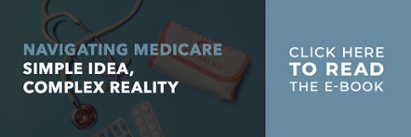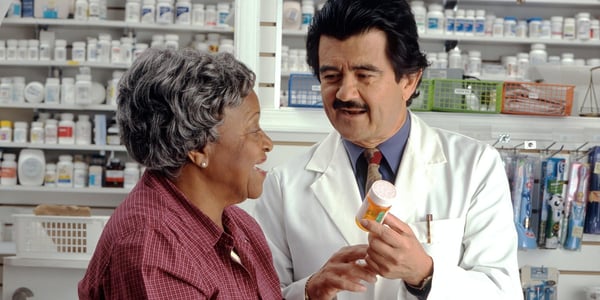When Medicare was introduced in 1965, prescription drugs were not covered. However, in...
8 Helpful Tips for Better Medication Management
Whether you are responsible for taking one medication, or many, it is critical to take them as directed. Unfortunately, it can quickly get complicated to remember how and when to take each medication correctly. If done improperly, medications can interact with each other in dangerous ways, and incorrect dosages can lead to serious health problems. That said, there are a few simple things you can do to help ensure you can manage this daily task safely and with less stress. This blog post will discuss some tips for managing medications safely and effectively for older adults.
8 Medication Management Tips for Older Adults
Let's take a look at nine practical medication management tips for older adults.
-
Pre-Sorting Using a Daily Pill Box
As we age, it becomes more challenging to remember to take our medication. A daily pill box can help make it easier by pre-sorting your pills for the week.
-
Fill your pill box with enough of each medication for the week.
-
Check each day's compartment in the morning to make sure you took your medication.
-
If you miss a dose, take it as soon as you remember unless it is almost time for your next dose. In that case, skip the missed dose and resume your regular schedule.
-
Some medications need to be taken with food, while others should be taken on an empty stomach.
-
-
Set Reminders
One way to help manage your medications is to set reminders. This can be done by setting alarms on your phone or computer. You may also want to ask a friend or family member to check in with you to make sure you are taking your medications as prescribed. It is also important to keep a list of your medications with you in case of an emergency.
-
Keep Track of the Expiration Dates
Be sure to keep track of the expiration dates on your medications and discard any that have expired. You can also ask your pharmacist about safe disposal options for outdated medications. This is important because expired medications may not work as intended and can even be harmful.
-
Ask For Help
If you're having trouble keeping track of your medications, asking for help can be a lifesaver. Talk to your doctor, pharmacist, or other healthcare providers about ways to stay on top of your medication regimen. They can offer helpful tips and strategies for keeping track of your pills, setting up a daily pill box, or using a smartphone app to remind you to take your medication.
Don't be afraid to ask for help from family and friends, too. They can be an excellent resource for ensuring you take your medication as prescribed. In addition, if you have trouble remembering to take your pills, they can serve as a reminder or even help by keeping track of your pill bottles and bringing them to you each day.
Staying on top of your medication regimen is crucial for maintaining your health and well-being. By asking for help and involving your loved ones in your care, you can ensure you get the most out of your medications.

-
Take Note of Side Effects
As we age, our bodies become less able to process medications the way they once did. Unfortunately, this can lead to an increased risk of side effects from even common, over-the-counter medications.
That's why it's important for older adults to be aware of the potential side effects of any medication they take and to report any unusual or bothersome symptoms to their healthcare providers.
Some common side effects to watch out for include:
If you experience any of these side effects, let your healthcare provider know so they can adjust your dose or prescribe a different medication. With some care and attention, you can ensure your medications work for you, not against you.
-
Plan Ahead For Refills
Ensure you have enough of your medications on hand, so you don't run out. Talk to your doctor or pharmacist about getting a three-month supply of your medications, if possible.
-
Keep All the Medications in One Place
Older adults often have to take a variety of medications, which sometimes can be confusing. So it is advisable to keep all medications in one place and maintain a list of all the medications. This will help you remember which medicine to take at what time and in what quantity.
-
The Older Adult and the Carer Should Both Know the Medicine Schedule
Many older adults tend to take their own medicine. However, if they have a carer, it is crucial that both the older adult and their carer know the medicine schedule. This way, if there are any changes to the schedule or if any medication needs to be added or removed, everyone is on the same page. In addition, if any day the carer has to take an off due to an emergency, the older adult can communicate the medicine schedule to the substitute carer.
The Risk of Poor Medicine Management
People aged 65 and older take an average of four prescription drugs and three over-the-counter medicines per day. With so many pills to remember, it's not surprising that seniors often have trouble keeping track of their medication regimens. Poor medication management can have serious consequences. Seniors who fail to take their medicines as prescribed have a higher risk of hospitalization and a greater chance of death than those who took their pills correctly.
Medication management is crucial for older adults. By following these simple tips, you can ensure that your medications work for you and help you stay healthy and safe. If you have any questions or concerns about your medications, talk to your doctor or pharmacist. They can offer helpful guidance and support to ensure that you're getting the most out of your medications.







